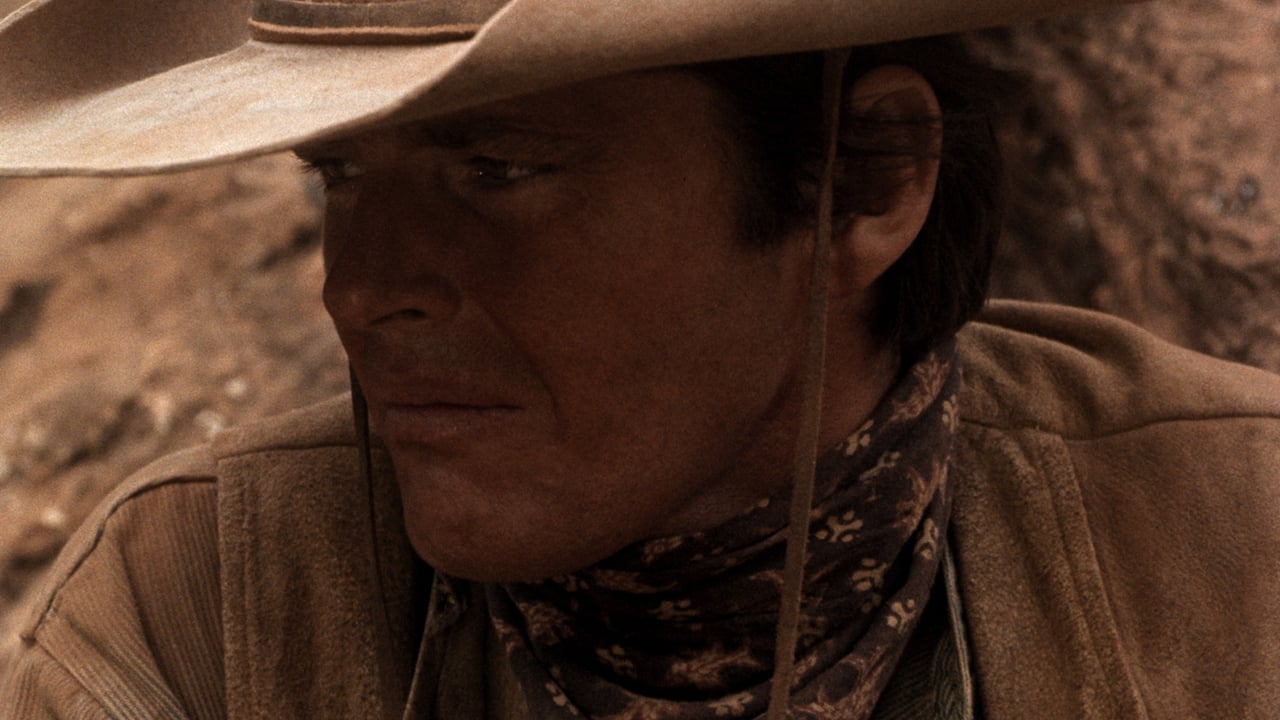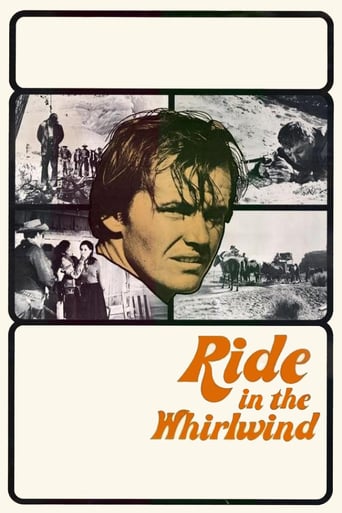

The mostly people asking me about Jack Nicholson never made part among the greatest actors in this genre,the answer is quite simple,all Nicholson's western are quite often misunderstood and forgotten,even the famous "The Missouri Breaks" which are the best of all them,Monte Hellman was in trouble with the producer Roger Corman who wants make two movies almost the same casting and same money altogether,end up got both things,by the results in box office weren't they really expected,so remains the time take care about that and today the finally the specialezed critic changes for a new understanding of such different material!!!Resume:First watch: 2010 / How many: 2 / Source: DVD / Rating: 7.25
... View MoreThe reviews by other IMDb members here are almost uniformly favorable to this Jack Nicholson scripted Western, even the viewers who rated it below average seemed generally approving of it with only one outright negative commentary as I write this. I didn't think this was a bad Western by any means, but for me, this was just a sloooowwww moving story that didn't manage to get me invested in the characters very much.I guess the unique element here had to do with the trio of characters, Wes (Nicholson), Vern (Cameron Mitchell) and Otis (Tom Filer) mistakenly pursued as outlaws who had the misfortune to meet up with a gang that had recently robbed a stagecoach and killed a couple men during the heist. To be sure, this was a staple feature of many old time B Westerns, but it was usually only one man involved who was on the run. Speaking of which, I'd never seen an outlaw bunch use a log across the trail to hold up a stage before, so that was another interesting bit.What was missing here was the tension, I just didn't feel it to any great degree. The posse pursuing Wes and Vern after Otis was shot didn't seem all that worked up about getting their men in any hurry, while the interlude at the cabin with the old couple and their daughter didn't create a feeling of terror or danger for them in any way. One would think that when Wes had Abigail (Millie Perkins) accompany him for a walk to the barn it would give rise to a heated confrontation of some sort but that opportunity was missed as well.Maybe I'm missing some nuance here, a couple of the reviews I've read were pretty thoughtful in their praise of the picture and gave me pause to consider my own initial opinion. But I have to call it as I see it, and ultimately, the picture just didn't deliver the goods for me.
... View MoreA trio of cowboys, Vern (Cameron Mitchell), Wes (Jack Nicholson) and Otis (Tom Filer), stop to rest for the night at the remote hideout of a gang of outlaws led by Blind Dick (Harry Dean Stanton). In the morning, they find themselves surrounded by a vigilante hanging party and are forced to become fugitives due to a case of mistaken identity.Made back to back with "The Shooting", this is the second Monte Hellman, Jack Nicholson and Roger Corman collaboration of 1966. With Nicholson writing, starring and producing, fans of his films ought to make a point of seeing this, one of his earlier creative ventures.The point of making a second western back to back was to save money. Corman, always trying to cut costs, figured it would be less money to have the same set for two films, especially if the actors and crew largely overlapped. Hellman has said this plan may not have worked as well as intended. He concedes they saved money on travel expenses, but the film cost itself hardly changed. Of course, when you're dealing with $75,000 for a movie (almost an unthinkably low sum), how much wiggle room can there be? This film expresses a rather bleak, minimalist quality that does not sentimentalize the Wild West. On the other hand, the violence is portrayed less graphically than in the films of Sam Peckinpah like "Pat Garrett and Billy the Kid" (1973). Was Peckinpah inspired by Hellman? Perhaps, considering that Rudy Wurlitzer had written Hellman's "Two Lane Blacktop" just prior to working with Peckinpah.
... View MoreOutstanding western. In my book, it's the best of Hellman's films, maybe because the 80- minutes has a distinctive story and little of Hellman's later intellectual posturing. Three itinerant cowpokes, on their way to a drive, are mistaken for outlaws by vengeful vigilantes, and have to ride for their lives after stopping by a homesteader family. All in all, there are faint echoes here of Wellman's vigilante classic The Oxbow Incident (1943).The story's upshot amounts to a series of genuine tragedies brought about by both coincidence and an uncaring posse. I really like the fact that contrary to Hollywood expectations, neither Wes (Nicholson) nor Vern (Mitchell) makes a move on the pretty homesteader girl (Perkins). They are, after all, concerned with surviving, not with a romantic subplot. Besides, her dad (George Mitchell) looks and acts like a really tough old guy. In my book, he delivers the movie's best performance. And catch that homestead where Dad, Mom (Squire), and Abigail live. It's the most convincing primitive shack and corral I've seen in many years of movie watching. Nothing cosmetic here. Instead, a really hard life on the frontier is driven home, though costuming could have made Abigail a little less spiffy looking. Nonetheless, that segment is the real heart of the movie, and produces a genuine tragedy when you think about it.And get a load of the countryside the men have to negotiate in their flight. It's as bleak and inhospitable as a devil's playground. There's no hope of living off the land for the fleeing men. It's like they've suddenly been condemned to the Third Level of Hell in order to get away. Here, Hellman comes across as an anti-John Ford since he does nothing to prettify the West either here or in The Shooting (1965). Neither is there any Fordian style humor. The acting throughout is grim and low-key as it should be. This, of course, is before Nicholson discovered that going over the top was a lot more fun than nuance. All in all, Hellman's minimalist style works well. Wisely, he does nothing to hype the story's tragic core. Instead, the viewer is left to think about the progression of events. In short, neither director Hellman nor writer Nicholson does anything to connect the dots, but they are there. The ending, of course, is unconventional in the extreme and might be taken as posturing on Hellman's part. But I found it-- if not satisfying-- at least appropriate for what had gone before. Too bad Hellman didn't continue to combine his minimalist style with story content, instead of allowing style to replace substance as he unfortunately does in his later work. Had he done so, we might have gotten one of Hollywood's truly outstanding and innovative careers.
... View More